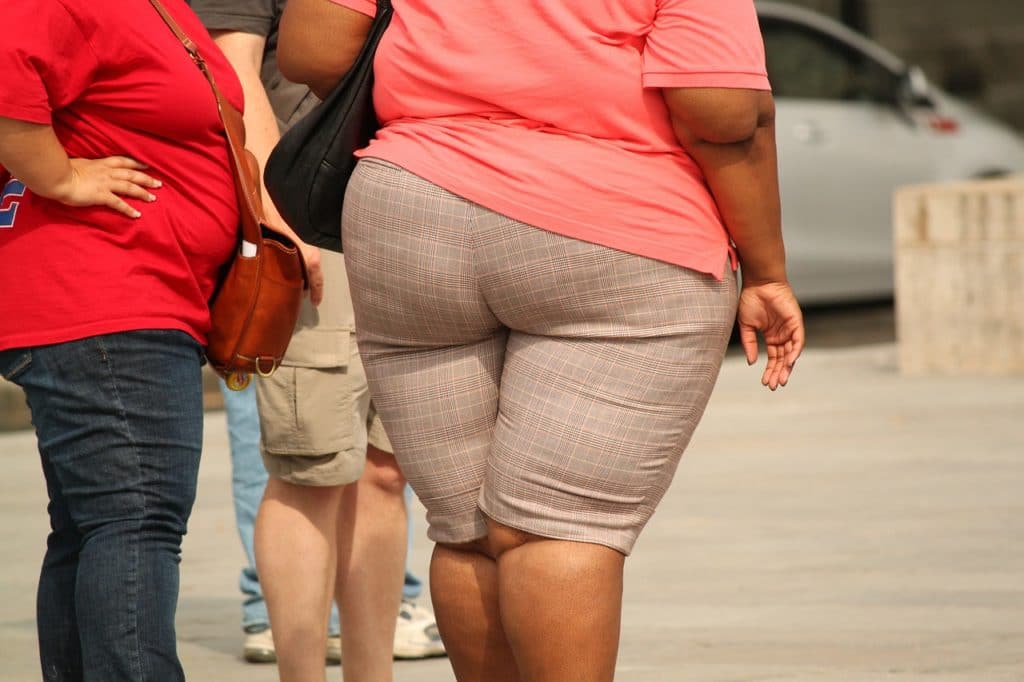Estrogen dominance after menopause contributes to weight gain and obesity
As a woman, as you grow older, chances are that maintaining your body weight might prove a little bit difficult. Well, it is not unusual to see such development of symptoms in women between the ages of 40 and 50. Middle-aged women, as it is medically clarified, are known to have reached the menopause stage. And it is the stage that your reproductive hormones will tend to decline, your menstruation (the monthly flow of blood) will tend to stop, and you might also suffer from the symptom of estrogen dominance after menopause.
During this period you will also gain weight with or without regular intake of food and exercise.

Obviously, there are many factors in the body that affect weight, but the role of hormones cannot be overlooked. Hormones are linked with how our body controls weight gain. As an illustration, your body’s hormones work in a similar way to a carpenter’s saw. When they are well balanced, your body will work as it should. But however, when they are not well balanced, you may begin to encounter difficulties.
Estrogen and progesterone are typical examples of hormones responsible for weight gain in the body. They are classified as female hormones while testosterone is classified as a male hormone. In women, for instance, estrogen helps to initiate sexual development along with progesterone. Also, it is responsible for the growth of sexual organs, skeletal system and control of the menstrual cycle.
What is menopause?
It is a natural decline in reproductive hormones when a woman reaches her 40s to 50s. Menopause has been a major occurrence for every adult woman. It occurs when you stop menstruating. i.e. when a woman stops ovulating. It is usually diagnosed when you have used 12 serial months without a menstrual period. One thing you should know though, it is a natural biological process. So, it is not a disease nor any disorder of any kind.
It is often associated with physical symptoms such as vaginal dryness, night sweats, mood changes, thinning hair, and dry skin, hot flashes, loss of libido, etc. Moreover, during menopause, ovarian follicles deplete in numbers and the ovaries become less active to estrogen and progesterone including other hormones such as Luteinizing Hormone (LH) and Follicle Stimulating Hormone (FSH), thereby making it difficult for LH and FSH to carry out its controlling function.
This period of depletion of estrogen in the body is called perimenopause. And this is associated with so many body disorders including weight gain, brain and nervous system disorder, cardiovascular diseases, reproductive system disorder, etc. It usually occurs in women 40 years of age and older.
Additionally, it encompasses the period during which your hormones are changing. However, during this period, you may still be fertile and still be able to menstruate. Read further to know how this is possible.
What is estrogen?
Estrogens are hormones that are important for sexual and reproductive development, mainly in women.
It has many other important functions, as well, including:
- Promoting bone health
- Protecting the brain and mood
- Helping to control blood cholesterol levels
The ovaries, which are two small glands in the lower pelvis, are sources of estrogen in the body. Estrogen has three main types which include estriol, estradiol, and estrone hormones. They all have different functions respectively.
Estrone or E1 is the main estrogen that persists after menopause and it spreads out to all parts of the body. Estradiol, or E2, is mainly produced by women of childbearing age while Estriol or E3, on the other hand, is produced during pregnancy.

Risk factors associated with low estrogen level
The risk factors associated with lowered estrogen level in the body include the following:
- Age factor
- Hereditary
- Nutrition intake
- Superfluous exercise
Symptoms of estrogen dominance after menopause in women
When your body’s estrogen and testosterone levels aren’t balanced, you may begin to encounter some certain symptoms. In women, potential symptoms include:
- Headaches
- Bloating
- Swelling and tenderness in your breasts
- Irregular menstrual periods
- Mood swings
- Weight gain
- Hair loss
- Decreased sex drive
- Fibrocystic lumps in your breast
How hormones cause weight gain during menopause?
One reason why people often experience weight gain during menopause is changing hormone levels. Menopause has two stages: peri-menopause & post-menopause.
During the former, the peri-menopause stage, the body progesterone decreases quite fast and most times often results in estrogen dominance. While the latter, the post-menopause stage, there is always a decrease in estrogen levels, thereby increasing the risk of heart disease, osteopenia, and osteoporosis. At the peri-menopause stage, estrogen dominance causes you to store more fat around your stomach area.
But how can estrogen cause weight gain if its level decreases during menopause? The level of progesterone decreases to almost 0, while the estrogen level drops to somewhere between 40 and 50%.
While this is true, you can still become estrogen dominant no matter how small they may appear. Thus, no matter how low they may be, if the progesterone level in your body is lower than the estrogen level, you will always experience symptoms of estrogen dominance.
What are other factors responsible for weight gain during menopause?
A lot of factors can cause weight gain during menopause even with the exclusion of hormonal changes. Factors such as lifestyle, genetic factors, and mental health could all play a role.
To begin with, your age is inversely proportional to your metabolism rate. The older you get, the slower your metabolism rate. Therefore, your body will burn calories at a slower rate. If you continue with your regular food intake during menopause without exercising, you are prone to experience weight gain. Similarly, if you reduce the number of hours you spent exercising, you can experience muscle breakdown and therefore can result in your body fat increment.

These are other factors that may contribute to weight gain after menopause:
- Family history of obesity
- Lowered metabolic rate
- Number of children
- Reduced physical activity and loss of muscle mass
- Chemotherapy
- Altered lifestyle
- Use of anti-depressant
- Use of antipsychotic medications
- Age
Maintaining your body weight during menopause

To manage your weight gain during menopause, try the following:
- Engage yourself in a regular and aerobic exercise. This will give your metabolism a boost. Aim for nothing less than 30-60 minutes of moderate physical activity, daily. Physical activity has a beneficial effect on estrogen levels both for women of childbearing age and for women in menopause.
- Try to accept the changes to your body that might have happened or occurred as a result of old age. And additionally, try to work towards fear of taking the risk. This can be done by taking healthy lifestyle measures.
- Try to eat a healthy diet that will reduce your weight gain. In other words, try to consume a low-carb diet. For example, the CSIRO Total Wellbeing Diet or the 5:2 diet, you can try with ProVen formula, enroll in a 14-day fat loss program or Sureslim, etc.
- Eat plenty of dietary fiber (cruciferous vegetables and brassicas), which helps to lower excessive estrogen levels. Some of these vegetables are brussels sprouts, broccoli, radish, cauliflower, Chinese cabbage, watercress, etc.
- The consumption of flax seeds also has a positive effect. Flax seeds contain phytoestrogens, plant-derived xenoestrogens that are particularly recommended in menopause.
- Try to build and maintain your muscle mass with strength training such as weight training exercise.
- Enroll yourself in Yoga exercises. It will help decrease waist circumference and weight.
- Avoid crash diets
- Consult your doctor from time to time. Your doctor can help you maintain your body weight gain during menopause.
Final thoughts: Estrogen dominance after menopause and weight gain
There are several factors to consider when setting up a fat loss diet plan during menopause. If you focused too much on weight loss and thereby deprived your body of some essential body nutrients, chances are that you can experience loss in bone mineral density (BMD).
It is not only imperative that you get healthy, the right way, but also important that you put your health first before going for any weight loss program.
